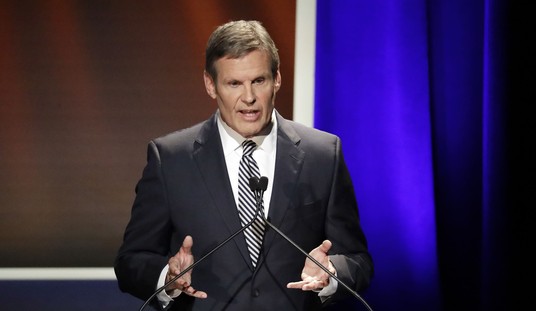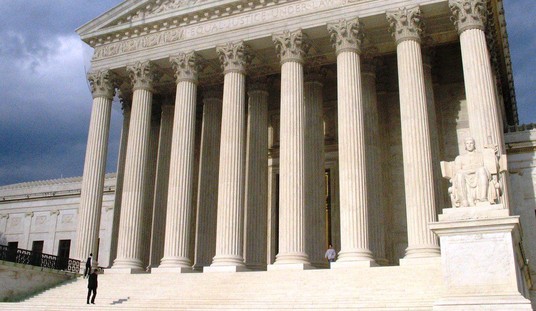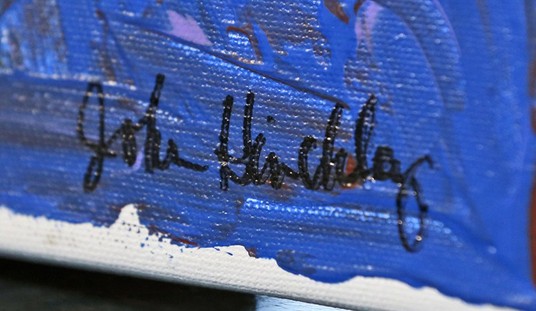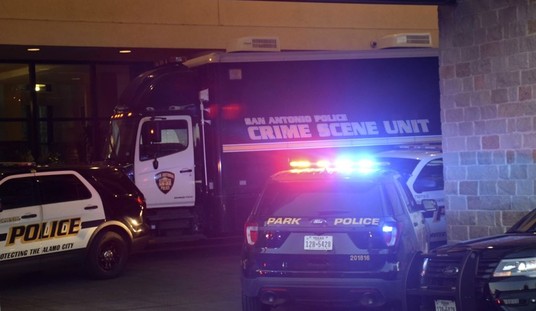Homicides in Washington, D.C, one of the most gun-controlled cities in the nation, have increased by 180 percent since 2017 according to a new report by the National Institute for Criminal Justice Reform, and rank-and-file police in the District say social media is the main reason for the spike in shootings.
Some of the findings of the report aren’t surprising. Like most other cities, a small cohort of residents are responsible for an outsized portion of violent crimes, and a majority of both suspects and victims are well acquainted with the criminal justice system. According to the report, homicide suspects and victims both average about 7 prior criminal cases, with nonfatal shooting suspects and victims slightly behind with about 6.5 prior dispositions. 54 percent of homicide suspects have a previous felony conviction, while 44 percent of victims have previously been convicted of a felony.
The numbers are slightly lower for juvenile offenders, with 48% of juvenile victims and suspects of homicides and nonfatal shootings having previous involvement in the criminal justice system. Those juveniles already known to law enforcement had an average of three arrests to their name, two of them for felony-level offenses. As the report details, “most gun violence in DC continues to be tightly concentrated on a small number of very high risk, young Black male adults who share a common set of risk factors,” including a significant criminal justice history, prior or active correctional agency supervision, a connection to a shooting within the previous 12 months, prior victimization in violence, and involvement in street crews or gangs.
Again, most of these stats are pretty similar to what is found in other major cities. One interesting finding, however, is what is driving the increased number of shootings. The NICJR interviewed over 70 D.C. police officers, and found “nearly unanimous agreement” about the primary factor that’s leading to violence:
There is a deadly mix of group/crew/gang members making music videos taunting or disrespecting their rivals that are posted on social media, and those videos spark or further inflame neighborhood conflicts that escalate into shootings. And while the music videos were identified as the primary issue, other comments and pictures posted to social media by group members also lead to shootings.
There’s another factor that’s helping to fuel the rise in violence, according to both law enforcement officers and violence prevention workers who were interviewed for the report: the District’s dysfunctional criminal justice system.
Numerous officers throughout the District also identified two issues that combine to create the feeling of impunity among people who engage in violence that have emboldened them to commit further acts of violence: a high bar for making arrests and a reduction in proactive policing.
The first issue is the feeling from officers that the criminal justice system is broken in the District. They cited an extremely high bar for making arrests, claiming it has been elevated to a beyond a reasonable doubt standard usually reserved for convictions in court. Officers also complained of some cases not being charged or when they are, the defendant being allowed to go home to await court proceedings.
The second issue officers noted was a significant reduction in proactive policing due to what they describe as a police department and DC Council that have made policy decisions that create strict rules where officers fear being disciplined or even fired for violating the new rules. For instance, the District enacted a unique consent search law that requires an officer to read a legal rights statement before conducting a consent search. There is also a relatively high threshold for when officers are allowed to chase a suspect in a vehicle, which officers claim has nearly ended vehicle chases.
Taken together, officers, and surprisingly even many Violence Interrupters, described a feeling of impunity among many people on the streets that may be encouraging criminal behavior.
You know what didn’t come up in interviews with these cops and violence interrupters? Concealed carry. In fact, it doesn’t sound like any of the individuals who were interviewed pointed to legal gun owners as a problem in D.C. Some officers spoke vaguely about the “increased availability of firearms”, but given the breadth and depth of the gun laws in place in the District of Columbia, that’s more an indictment of the failure of gun control than anything else. In fact, even with the 180 percent increase in murders since 2017, the homicide rate in D.C. is still more than 50 percent lower than the historic high of 80.6 per 100,000 set back in 1991, when the District’s ban on handguns was firmly in place.
Will D.C. crack down on social media or Internet access as they’ve done with gun ownership? Will we see a wave of laws targeting residents’ First Amendment rights, just as the city council has done with the Second Amendment? I doubt it, and honestly, I don’t think that would be any more effective than preventing the average citizen from keeping or bearing arms.
It’s pretty clear that the most important step the District can take is restoring some semblance of order in the criminal justice system, which all too often provides no consequences whatsoever to the perpetrators of violent crime. That’s not just limited to the court system, either. If police are so hamstrung by District policies that they can’t pursue violent offenders or are hesitant to make an arrest because they fear that prosecutors are just going to dismiss the case or refuse to bring charges, why wouldn’t violent offenders have a feeling of impunity? In many cases they’re quite literally getting away with murder, not to mention armed robberies, carjackings, and aggravated assaults.
That can’t be solved by city council members throwing another gun control law on the books and patting themselves on the back for “doing something.” The District’s dysfunction is so entrenched (and enabled by a one-party system) that fixes won’t be easy, and they certainly won’t come about by blaming lawful gun owners for violent crime. The District needs to get back to basics in both policing and prosecution instead of trying to infringe their way to safety at the expense of our individual right to self-defense.









Join the conversation as a VIP Member